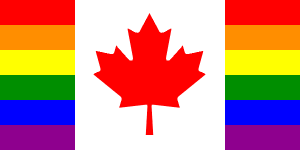 Russia’s anti-homosexual law, which prohibits the distribution or possession of any gay propaganda, has ignited controversy amongst the athletes who will be competing in the Winter Olympics this February as well as international politicians. Unlike the Vancouver 2010 Olympic Games, which saw the implementation of Pride House to celebrate and welcome LGBT athletes, Sochi is refusing to adopt any displays that promote or support homosexual rights. While President Vladimir Putin assured Thomas Bach, the President of the International Olympic Committee (IOC), that Russia would welcome competitors of any race, religion, or sexual orientation and that they would not be subject to Russia’s ban on gay propaganda, this statement has not prevented either athletes and politicians from protesting the lack of equality. European Commissioner, Viviane Reding and German President Joachim Gauck have boycotted the upcoming Winter Olympics, while New Zealand athlete Blake Skjellerup has publicly promised to protest during his stay in Russia. Most recently, the Vancouver government has motioned to send Tim Stevenson, an openly-gay city councillor as a representative at the Sochi Olympics. Amidst these growing acts of protest, the Toronto Star reported earlier this week that the IOC is finalizing a letter to send to athletes reminding them of Rule 50 in the Olympic Charter, which states that “No kind of demonstration or political, religious or racial propaganda is permitted in any Olympic sites, venues or other areas” in an effort to prevent any more controversy.
Russia’s anti-homosexual law, which prohibits the distribution or possession of any gay propaganda, has ignited controversy amongst the athletes who will be competing in the Winter Olympics this February as well as international politicians. Unlike the Vancouver 2010 Olympic Games, which saw the implementation of Pride House to celebrate and welcome LGBT athletes, Sochi is refusing to adopt any displays that promote or support homosexual rights. While President Vladimir Putin assured Thomas Bach, the President of the International Olympic Committee (IOC), that Russia would welcome competitors of any race, religion, or sexual orientation and that they would not be subject to Russia’s ban on gay propaganda, this statement has not prevented either athletes and politicians from protesting the lack of equality. European Commissioner, Viviane Reding and German President Joachim Gauck have boycotted the upcoming Winter Olympics, while New Zealand athlete Blake Skjellerup has publicly promised to protest during his stay in Russia. Most recently, the Vancouver government has motioned to send Tim Stevenson, an openly-gay city councillor as a representative at the Sochi Olympics. Amidst these growing acts of protest, the Toronto Star reported earlier this week that the IOC is finalizing a letter to send to athletes reminding them of Rule 50 in the Olympic Charter, which states that “No kind of demonstration or political, religious or racial propaganda is permitted in any Olympic sites, venues or other areas” in an effort to prevent any more controversy.
Russia has yet to establish an environment where people of different sexual orientations are not discriminated against. However, Canada has not always promoted sexual equality and gay rights either. In “What does being gay have to do with it? A Feminist Analysis of the Jubran Case” by Tia Dafnos, which appeared in Volume 49 Issue 5 of the Canadian Journal of Criminology and Criminal Justice, the author provides an overview of Canada’s first encounter with the issue of sexual discrimination in the school system. The article asserts that homophobia needs to be seen as a critical endeavour for which governments create policies, laws, and funded programs.
Comments on this entry are closed.